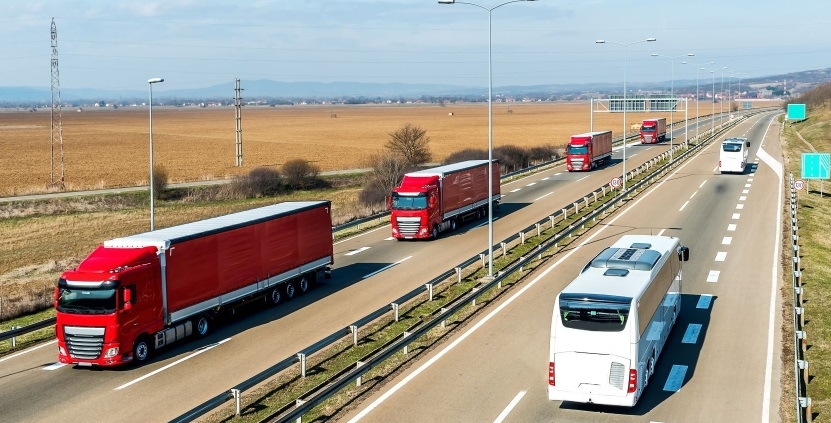EU Commission welcomes agreement on strong EU targets to reduce CO2 emissions from new trucks and urban buses
The European Commission welcomes today’s agreement between the European Parliament and Council on a provisional political agreement strengthening CO2 emissions standards for new heavy-duty vehicles (HDVs) entering the EU market from 2030. The Regulation will set new ambitious CO2 emissions reduction targets for 2030, 2035 and 2040. The new standards will ensure that this segment of the road transport sector contributes to the shift to zero-emissions mobility and the EU’s 2030 climate ambitions and climate neutrality by 2050.
Ambitious targets and a wider scope
Today’s agreement sets CO2 emissions reduction targets for HDVs of 45% for 2030-2034, 65% for 2035-2039 and 90% as of 2040, compared to 2019 levels. The scope of the Regulation is expanded and these standards will now apply to almost all trucks (including vocational vehicles, such as garbage lorries, tippers or concrete mixers as of 2035), urban buses, long-distance buses and trailers. Specific emissions reduction targets are also set for trailers (7.5%) and semi-trailers (10%), starting from 2030.
To accelerate the transition to zero-emission public transport across Europe, new urban buses must reduce emissions by 90% as of 2030. All new urban buses will have to be zero-emissions by 2035.
Under the provisional deal, the Commission will review the effectiveness and impact of the regulation by 2027. This review will cover the expansion of the scope to small lorries, a methodology for registering HDVs exclusively running on CO2 neutral fuels, in conformity with EU law and climate neutrality objectives, the role of a carbon correction factor in the transition towards zero-emission HDVs and a methodology for the determination of full lifecycle CO2 emissions of new heavy-duty vehicles.
Today’s agreement sends another clear signal to manufacturers, transport operators and users to steer investments towards innovative zero-emission technologies and boost the rollout of recharging and refuelling infrastructure.
Next steps
The European Parliament and Council now need to formally approve the agreement. Once this process is completed, the new legislation will be published in the Official Journal of the Union and enter into force.
Background
The Commission proposed the draft regulation in February 2023 to set CO2 standards for heavy-duty vehicles from 2030 onwards to help reach the EU’s objective for climate neutrality by 2050 and lower the demand for imported fossil fuels. Heavy-duty vehicles are responsible for more than 25% of greenhouse gas (GHG) emissions from road transport in the EU and account for over 6% of the total EU GHG emissions.
(source: EU Press Centre)



